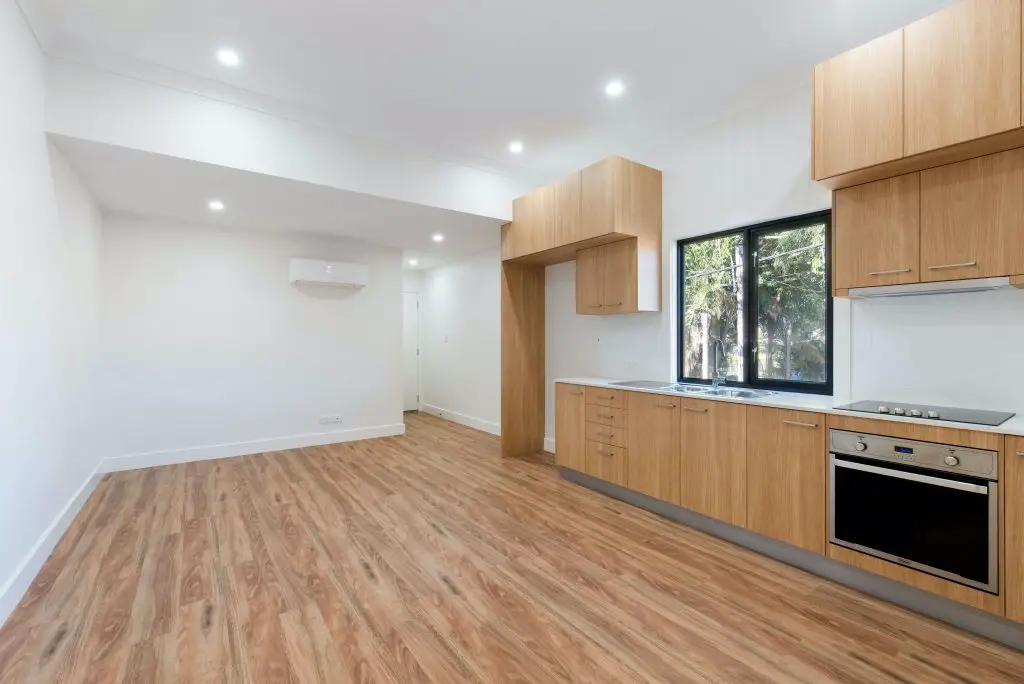You may be asked to pay a holding deposit if you want to rent a property. A holding deposit is a sum of money you pay a landlord or letting agent to reserve a property before you sign a tenancy agreement. This payment is usually requested while the landlord carries out pre-tenancy checks, such as referencing, affordability, or credit checks.
Understanding the purpose and legal aspects of holding deposits before paying one is essential. The amount you pay as a holding deposit is usually one week’s rent and should be returned to you if you decide not to proceed with the tenancy or if the landlord decides not to rent to you.
However, there are some cases where the holding deposit may still need to be refunded. Understanding your rights and responsibilities as a tenant can help you avoid any disputes or issues with the holding deposit.

Key Takeaways
- A holding deposit is a payment to reserve a property before signing a tenancy agreement.
- The holding deposit amount is usually no more than one week’s rent and should be refunded if you decide not to proceed with the tenancy or if the landlord decides not to rent.
- Understanding your rights and responsibilities as a tenant can help you avoid any disputes or issues with the holding deposit.
Understanding Rental Holding Deposits
You may be asked to pay a holding deposit if you want a rental property. This deposit is designed to secure the property while processing your application.
In this section, we’ll explain a holding deposit, why you might need to pay one, and what happens to the money.

What is the difference between a holding deposit and a tenancy deposit?
Holding and tenancy deposits are two types of residential property renting. They serve distinct purposes and have different rules and regulations associated with them.
Here’s a breakdown of the key differences:
Holding Deposit:
- Purpose: A prospective tenant usually pays a holding deposit to reserve a rental property while they complete the application and screening process. It is a way to express the tenant’s serious interest in renting the property.
- Amount: A holding deposit is typically smaller than a tenancy deposit and is often equivalent to one week’s rent, though it can vary depending on local regulations and landlord policies.
- Refundable: In many cases, a holding deposit is fully refundable if the tenant meets all the required criteria and proceeds with the tenancy. Suppose the tenant decides not to rent the property or fails to meet the conditions. In that case, the landlord may retain some or all of the holding deposit to cover expenses incurred during the holding period, such as advertising or lost rental income.
- Timeframe: A holding deposit is usually paid before signing a tenancy agreement and is intended for a short-term holding period, typically a few days to a couple of weeks.
Tenancy Deposit (Security Deposit):
- Purpose: A tenancy deposit, often called a security deposit, is a more significant sum the tenant pays at the beginning of the tenancy. Its primary purpose is to provide financial protection to the landlord in case the tenant causes damage to the property, breaches the lease terms, or fails to pay rent.
- Amount: A tenancy deposit usually equates to one to two months’ rent, which can vary depending on local regulations and landlord policies. Some areas may have legal limits on how much a landlord can charge as a deposit.
- Refundable: A tenancy deposit is typically refundable at the end of the tenancy if the tenant has fulfilled all their obligations under the lease agreement. This includes leaving the property in good condition, paying all rent owed, and following any other terms outlined in the lease.
- Protection: In many jurisdictions, landlords must protect the tenancy deposit in a government-approved scheme to ensure its fair return to the tenant at the end of the tenancy. Failure to do so can result in penalties for the landlord.
Why Do You Pay a Holding Deposit?
A holding deposit is a sum of money you pay a landlord or letting agent when you apply for a rental property.
It shows you are serious about renting the property and committed to the application process. The holding deposit is usually equivalent to one week’s rent, although this can vary depending on the property and the landlord.
When you pay a holding deposit, the property is taken off the market and reserved for you while processing your application.
This means that the landlord cannot accept any other offers on the property during this time. If your application is successful, the holding deposit will be put towards your tenancy deposit or first month’s rent.
If your application is unsuccessful, the holding deposit should be returned to you. However, there may be circumstances where the landlord is entitled to keep the holding deposit. For example, if you fail a credit check or provide false information on your application.
It’s important to note that a holding deposit differs from a tenancy deposit. A tenancy deposit is a more significant sum of money you pay when signing the tenancy agreement.
This deposit is held by the landlord or letting agent and is used to cover any damage or unpaid rent at the end of the tenancy.
To ensure that your holding deposit is protected, it’s a good idea to check that the landlord or letting agent is a member of a deposit protection scheme, such as MyDeposits or the Deposit Protection Service.
These schemes ensure that your deposit is protected and that you are entitled to its return if you meet the tenancy agreement terms.
If your application is successful, the holding deposit will be put towards your tenancy deposit or first month’s rent. If your application is unsuccessful, the holding deposit should be returned to you.
Legal Aspects of Holding Deposits
When it comes to holding deposits, there are certain legal aspects that you should be aware of. These legal aspects can vary depending on factors such as the type of tenancy agreement, the government regulations, and the role of letting agents.
Tenant Fees Act 2019
The Tenant Fees Act 2019 regulates how much a landlord or letting agent can charge you for a holding deposit. Under this act, a landlord or letting agent can only request a holding deposit equivalent to one week’s rent.
This holding deposit should be refunded if you decide not to rent the property or if the landlord decides not to rent to you.
Assured Shorthold Tenancy
If you rent a property under an Assured Shorthold Tenancy (AST), the landlord or letting agent must protect your holding deposit. This means they must place your holding deposit in a government-approved tenancy deposit scheme within 30 days of receiving it. They must also provide information about the scheme within that time frame.
Right to Rent
Before you pay a holding deposit, the landlord or letting agent must check that you have the right to rent in the UK; this is a legal requirement under the Right to Rent scheme. They must check your immigration status and documents to ensure you have the right to rent in the UK.
Trading Standards
If you feel you have been mistreated by a landlord or letting agent regarding your holding deposit, contact Trading Standards. They can provide you with advice and guidance on your legal rights and investigate any complaints you make.
Letting Agents
Letting agents play an essential role in the rental process and must follow specific regulations when holding deposits. They must be transparent about any fees they charge and not charge you more than is allowed under the Tenant Fees Act 2019.
Paying a Holding Deposit
When you find a rental property that you are interested in, you may be asked to pay a holding deposit to secure the property. A holding deposit is a sum of money you pay the landlord or letting agent to reserve the property while they check your references and prepare the tenancy agreement.
To pay a holding deposit, you must provide the landlord or letting agent with the agreed amount. The holding deposit amount is usually equivalent to one week’s rent. You may also be required to pay additional money as rent in advance.
Once you have paid the holding deposit, the landlord or letting agent will take the property off the market and reserve it, they will then begin checking your references and preparing the tenancy agreement.
Refunding a Holding Deposit
If your references check out and the tenancy agreement is agreed upon, the holding deposit will be deducted from your first month’s rent. However, if your references do not check out or you decide not to proceed with the tenancy, the holding deposit should be refunded to you.
The deadline for the landlord or letting agent to return the holding deposit to you should be clearly stated in your tenancy agreement. The deadline is usually within 14 days of the payment of the holding deposit.
If the landlord or letting agent fails to return the holding deposit to you within the deadline, you may be entitled to compensation. However, if you fail to proceed with the tenancy for any reason other than the landlord or letting agent’s breach of the agreement, you may not be entitled to a refund of the holding deposit.
It is important to note that holding deposits are usually non-refundable if you fail a credit check or referencing. Additionally, administrative costs may be deducted from the holding deposit if you decide not to proceed with the tenancy for any reason other than the landlord or letting agent’s breach of the agreement.
In summary, paying a holding deposit is common when renting a property. Understanding the process of paying and refunding holding deposits is essential to ensure that you are protected and aware of your rights as a tenant.
Tenant Checks and References
When you are looking to rent a property, the landlord or letting agent may carry out various checks and references before agreeing to let the property to you. These checks are designed to ensure that you are a suitable tenant and that you will be able to pay the rent and take care of the property.
One of the most common types of checks is a reference check. This involves the landlord or letting agent contacting your previous landlord or letting agent to ask about your tenancy.
They may also ask for references from your employer or a character reference from someone who knows you well. This check is to ensure that you have a good track record of paying your rent on time and taking care of the property.
Another essential check is a credit check. This involves the landlord or letting agent checking your credit history to see if you have any outstanding debts or a history of missed payments. This check ensures that you are financially stable and can pay the rent.
In addition to these checks, landlords and letting agents must carry out a Right to Rent check. This involves checking that you have the legal right to rent a property in the UK.
Landlords and letting agents must check your immigration status to ensure that you are legally allowed to rent a property.
It is important to note that landlords and letting agents cannot charge you for these checks. They must carry them out as part of their duty of care to their property and to ensure they are letting to a suitable tenant.
Tenant checks and references are an important part of the rental process. They help to ensure that you are a suitable tenant and that you will be able to take care of the property and pay the rent on time.
By understanding the types of checks that may be carried out, you can be better prepared for the rental process and increase your chances of being accepted for a tenancy.
The Role of Letting Agents and Landlords
Regarding rental holding deposits, both letting agents and landlords have important roles. As a tenant, it’s essential to understand these roles and how they impact you.
Letting Agents
They are letting agents act as intermediaries between landlords and tenants. They are responsible for advertising and showing properties, carrying out background checks on tenants, and drawing up tenancy agreements. Some letting agents may also require tenants to pay a holding deposit before they can secure a property.
If you’re dealing with a letting agent, it’s important to understand their policies regarding holding deposits. Ensure you ask about the deposit amount, how long it will be held, and the circumstances under which it may be refunded or forfeited.
Landlords
Landlords are the property owners who rent out their properties to tenants. They may work with a letting agent or manage the rental process themselves. Landlords may also require tenants to pay a holding deposit to secure a property.
You should know your landlord’s policies regarding holding deposits as a tenant. Ensure you understand the deposit amount, how long it will be held, and the circumstances under which it may be refunded or forfeited.
It’s worth noting that some landlords may avoid working with letting agents and handle the rental process themselves. In these cases, the landlord will collect and hold the holding deposit.
Responsibilities
Both letting agents and landlords are responsible for ensuring that holding deposits are handled fairly and transparently. This includes providing tenants with clear information about the deposit, how it will be handled, and the circumstances under which it may be refunded or forfeited.
If you’re dealing with a letting agent or landlord and have concerns about handling your holding deposit, you should raise these concerns with them directly. If you cannot resolve the issue, seek legal advice or contact your local authority for assistance.
Remember, as a tenant, you have rights when it comes to rental holding deposits. By understanding the roles and responsibilities of letting agents and landlords, you can ensure that your deposit is handled fairly and transparently.
@lettingaproperty.com What is a holding deposit? 🤌🤌 #Tenancy #TenantTikTok #UKRenters #TenantAdvice #Renting ♬ original sound - lettingaproperty.com
Regional Differences in Deposit Regulations
When it comes to rental holding deposits, regulations can vary depending on the region in the UK. Here are some key differences to keep in mind:
England
In England, holding deposits are capped at one week’s rent. If the tenancy agreement is signed, the holding deposit must be applied toward the first month’s rent or deposit.
If the tenant decides not to proceed with the tenancy, the landlord can retain the holding deposit only if they provide false or misleading information or fail a right-to-rent check.
Wales
In Wales, holding deposits are also capped at one week’s rent. However, if the landlord decides not to proceed with the tenancy, they must return the holding deposit to the tenant within seven days.
If the tenant decides not to proceed with the tenancy, the landlord can retain the holding deposit only if they provide false or misleading information or fail a right-to-rent check.
Scotland
In Scotland, there is no cap on holding deposits. However, the landlord must provide a written agreement outlining the holding deposit’s terms and conditions.
If the tenancy agreement is signed, the holding deposit must be applied toward the first month’s rent or deposit. If the tenant decides not to proceed with the tenancy, the landlord can retain the holding deposit only if the tenant provides false or misleading information.
It’s important to note that these regulations can change over time, so it’s always a good idea to check the most up-to-date information for your specific region. Additionally, it’s essential to carefully read and understand any agreements or contracts before signing them.
Disputes and Resolutions
If you disagree with your landlord over the return of your holding deposit, there are several steps you can take to resolve the issue.
Firstly, try to talk to your landlord and explain your concerns. They may be willing to return your holding deposit or provide more information about why they keep it. If you cannot agree, consider taking legal action or using a dispute resolution service.
If your landlord is a member of a redress scheme, you can contact the scheme for guidance on resolving the dispute. The redress scheme can mediate between you and your landlord or guide you on taking legal action if necessary.
If you are unable to resolve the dispute through mediation or legal action, you can contact your local council for advice. They can guide your rights and responsibilities as a tenant and any fines or penalties that your landlord may face for failing to return your holding deposit.
It is important to note that if your landlord is found to be in breach of the law, they may be required to pay a fine or face legal action. Therefore, keeping all relevant documents and correspondence in case you need to take legal action is essential.
Additional Considerations for Tenants
When renting a property, paying a holding deposit is a common practice. However, there are some additional considerations that tenants should keep in mind before paying a holding deposit.
Affordability
Before paying a holding deposit, you must ensure you can afford the rent and bills associated with the property. Consider other financial commitments and ensure you have enough money to cover your living expenses.
Tenancy Agreement
Make sure you read the tenancy agreement carefully before paying a holding deposit. The agreement should outline the tenancy terms, including the rent, move-in date, and any other fees or charges you may be required to pay.
Tenant Fees Act
The Tenant Fees Act regulates the fees that landlords and letting agents can charge tenants. Ensure you know your rights and the maximum fees that can be charged. For example, holding deposits are capped at the equivalent of one week’s rent.
References and Credit Checks
Landlords and letting agents may require references and credit checks before agreeing to rent a property to you. Ensure you provide accurate information and check your credit report beforehand to ensure no errors or issues could affect your application.
Guarantor
If you cannot provide satisfactory references or have a poor credit history, you may be required to provide a guarantor. A guarantor is someone who agrees to pay your rent if you are unable to do so.
Lost Keys and Security Devices
If you lose the keys or security device for the property, you may be required to pay for their replacement. Before signing the tenancy agreement, you are aware of any costs associated with lost keys or security devices.
Non-Refundable
Holding deposits are usually non-refundable if you pull out of the tenancy agreement. Ensure you are committed to renting the property before paying a holding deposit.
Deposit Protection Scheme
Landlords must protect your deposit in a government-approved tenancy deposit scheme (TDP). Make sure you are provided with information about the scheme and how to reclaim your deposit at the end of the tenancy.
Right to Rent Check
Landlords must carry out a right-to-rent check to ensure that you have the right to rent a property in the UK. Make sure you provide the necessary documentation and are aware of the process.
Administrative Costs
Landlords and letting agents may charge administrative costs for tasks such as referencing and preparing the tenancy agreement. Ensure you know any costs before agreeing to rent the property.
Pull Out and Default Fees
If you pull out of the tenancy agreement or fail to meet your obligations as a tenant, you may be charged default fees. Please ensure you know these fees and how they are calculated.
ARLA
The Association of Residential Letting Agents (ARLA) is a professional body for letting agents. Look for letting agents who are members of ARLA as they are required to adhere to a code of conduct and provide a high standard of service.
In summary, paying a holding deposit is a common practice when renting a property, but there are several additional considerations that tenants should keep in mind. Before paying a holding deposit, ensure you know your rights and obligations and read the tenancy agreement carefully.


 10 Minute Read
10 Minute Read


